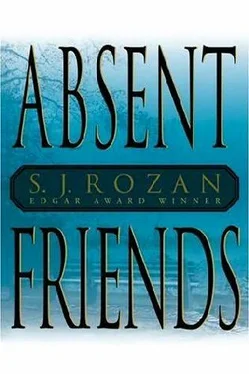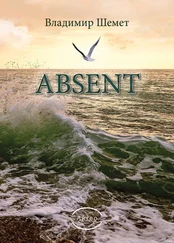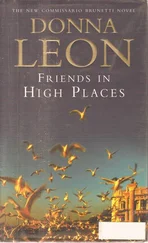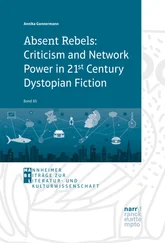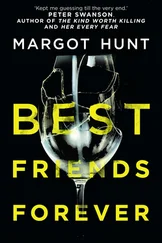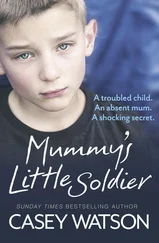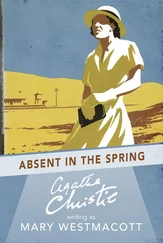Dealings with Crime Figures
by Harry Randall
Surprising her, Harry had left it up all day yesterday. But he was sure to take it down today. No, but-twisting stomach, ice on her skin-according to Georgie, Harry wouldn't be here today, wouldn't be here again, wasn't here, was gone.
But-swept away suddenly, losing her footing to a rogue wave of hope-Georgie must be wrong ! It wasn't Harry. Someone else took Harry's car. Who? What's the difference? It was someone else's body. She'd go, she'd go now over to the morgue, past the tent and the refrigerated trucks where all the unidentified bodies were, and this would be just another one, just someone else no one knew. She'd tell them it wasn't Harry, and later, back at home, she and Harry-
Georgie was shaking his head, reaching for her. Laura heard, horrified, her own voice, high and shrill, speaking these thoughts aloud. Shivering, she spun away from Georgie, turned to the river, willing Georgie to stay back: if he touched her, she would splinter and crack, like ice in warm water.
The river blurred, her face felt steamy: oh God, she was crying, with Georgie there. Her knees wobbled. Despising herself, she dropped onto a chair. It was the one with the coffee stain on the arm, from the morning meeting, soon after Laura had come to the Tribune, when Leo had complained about something -toothlessness, Leo's word-in a story of Harry's. Harry, to the mortal eye unperturbed, offered an insolent reply. Leo tossed the pile of copy and a disgusted snort in Harry's direction. The gods clashing on Olympus: Laura had been thrilled. The papers had upended someone's coffee, not Harry's, she remembered, but someone else's.
“Who has the story?” Confused, Laura heard an imitation of her own voice demand this of Georgie. Oh, she thought: Reporter-Laura, that's who's speaking. She who went to a hospital groundbreaking to give the donor a chance to comment on the rumor that the multimillion-dollar windfall was profit from his Mexican drug operation. She who pushed herself into the face of a mother to ask how she felt now that a fire had killed her children.
Georgie, weakly and after a moment: “What?”
“Who?”
“Laura, what's the difference?” Georgie had damp brown eyes and a mouth eternally open, eager to speak the right words, of comfort, of explanation, if only he could find them. He preferred to be called George or, better, to be abruptly summoned by his last name-“Holzer!” the way you'd hear “Randall!” or “Stone!” echo through the newsroom-but no one ever did that. His beat was technology, science. Half the Tribune staff held he was a virgin; the rest, that he visited a Korean whorehouse on 38th Street twice a week.
Laura, who never gazed long upon Georgie, looked angrily past him now, through the blue sky's reflection in the conference room glass, into the newsroom.
It was chaos there, the regular thing. The attacks had not forced the Tribune 's offices closed, but the rhythm, the urgent fast and steady beat of newsgathering, had been smashed and jangled. Throw a rock in water, orderly rings pulse in all directions; throw many, and the world is anarchy, confusion. It took time for the Tribune 's tempo to reassert, but finally it had. Keyboards clicked. Men with their polished shoes on their desks leaned dangerously back in chairs asking pointed questions into phones. Women with sharp elbows leaned forward over theirs, desks and phones, listening darkly. Someone came, someone went.
Laura turned to Georgie. “They don't know yet.” It was an accusation.
“Leo's about to call us together. I asked him if I could tell you first.” It was an admission of guilt.
“First? So you could-? I have to-?”
On top of her words: “Laura, you know-”
But Laura was refusing to know. A wave of fury threw her out of her chair, fury at Georgie for the news he'd brought and the way he'd brought it, at the river for flowing and the sun for shining and the leaves for falling from the trees.
Before she could scream and tear Georgie apart-he would have permitted this-a change in the tenor of the newsroom froze her. A ripple in the force field: Leo was stepping from his office. He planted himself just over his threshold, and when he stood there and roared, “People!” everything stopped.
Square-headed, white-haired, rough-faced, and bulky, Leo waited for phone calls to end and documents to be saved-as. Laura and Georgie, after a motionless moment, stumbled unthinking through the conference room door: rage, shock, and sorrow could not, even combined, begin to overcome the autoresponse triggered in a reporter by Leo's bellow from the doorway.
So Leo delivered the news, and Laura had to hear it again.
This time it was ornamented with details. If she'd been listening as a reporter, these would have been important to her. Fascinating even, as they clearly were to the colleagues around her. Unable any longer to be impressed by death, they could still be surprised by the personal nature of one like this; but not enough to keep them from scribbling notes on pads, in case Leo assigned them the story, or from stealing glances away from Leo to send them Laura's way when they thought she wasn't looking.
But she was looking, though she was determined to have nothing but scorn for their glances, and she didn't hear the news as a reporter, though she was one. She heard it as a student, as an acolyte, apologist, and lover, and the word Georgie hadn't used but Leo did, the dam-break that swept her into stunned disbelief and powerless fury, was suicide.

The Man Who Sat by the Door
October 30, 2001
The catastrophic force of the earthquake that would be summoned up by Harry Randall's death was not at first apparent to Marian Gallagher. All the news brought her was a disquietude such as she might have felt at faint tremblings of the ground: vibrations so weak they could be dismissed as the inventions of an anxious imagination, except by those who had passed through such times before.
The breathless last to join a cheery group of friends around a bistro table-Marian had many groups of friends-she was kissed and greeted, her wine was poured, the olives and the bread were passed her way. How are you, honey, Clark asked, and Sue, always knowing what meant the most, asked how that young firefighter was, her godson, the one who was hurt, the one the story in the paper was about? Kevin, replied Marian; he's doing very well, we're very grateful. Tomiko asked how her day had gone, how many forms she'd filled out for people ( in, Sam said, you fill forms in ), was it still as hard as in the beginning, working with the victims?
Marian smiled and said, Oh no, but she wasn't working with the families, those were the volunteers with the really hard jobs, she didn't know how they did it. She tasted the wine, a dry chardonnay, and nodded approvingly. Her clients were the businesses, she told them, the stores, the offices, the take-outs, and the delis. Some of them had given so much, you know that one locksmith opened his shop and told the rescue workers, Just take what you need. And now everything was gone. Everything! And the restaurants had been feeding the rescue workers, and people had donated water, breathing masks, whatever they had, people had given whatever they had. It was wonderful, now, to be able to really do something for them.
Sam reached around the table and topped off people's wineglasses. Katie asked Tomiko how the baby was. Ulrich, as usual serious about the menu, recommended that people try the mussels, they were exceptional the last time he was here, although of course that was before, but that shouldn't make a difference, should it, now that they'd reopened? Sue picked up a story she'd been telling Jeana; Marian overheard something about cell phones, being connected into some stranger's call because the lines were all still so weird downtown.
Читать дальше
